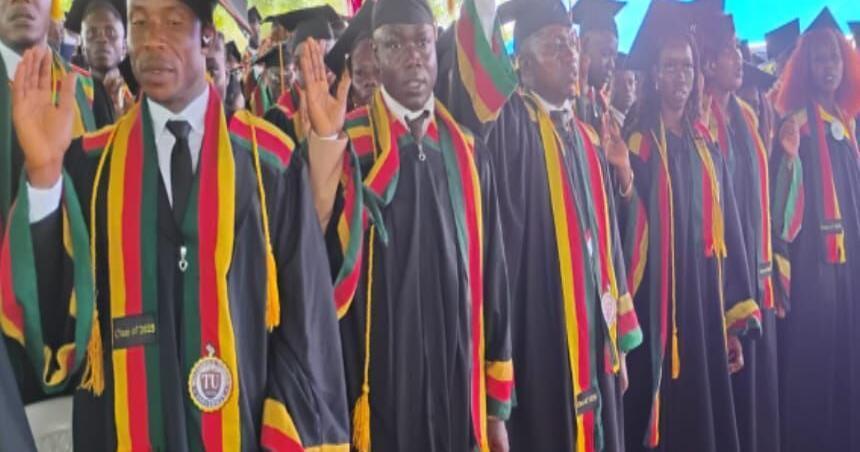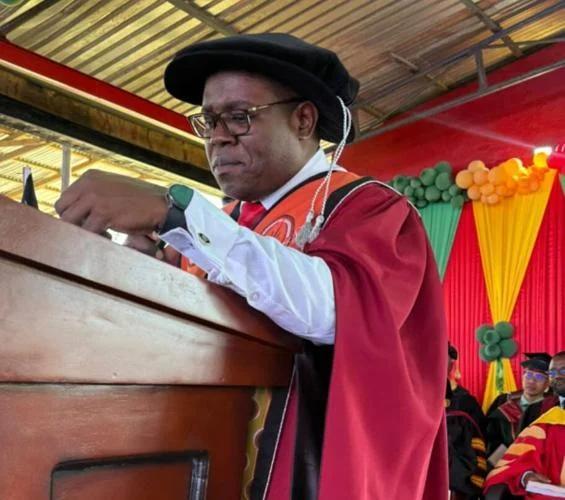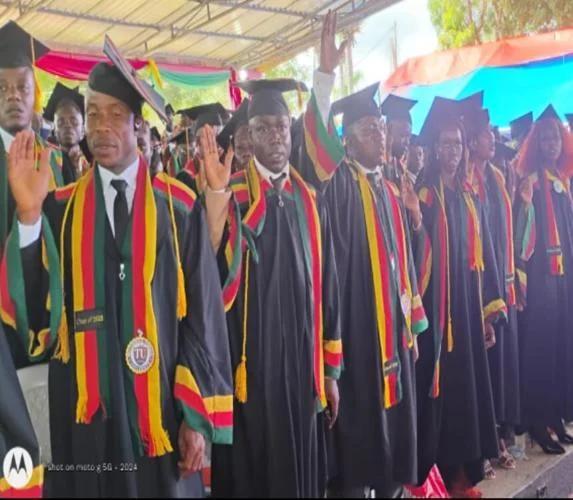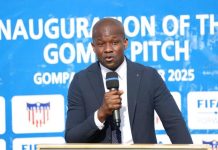Africa-Press – Liberia. The 12th graduation convocation of William V. S. Tubman University (TU) was elevated by a stirring call for Pan-African unity and transformative leadership from Professor Letlhokwa George Mpedi, Vice-Chancellor of the University of Johannesburg (UJ). Delivering the keynote address on the university’s Harper campus, the South African educator urged graduates to use their education as a catalyst for collective continental progress.
The ceremony marked another milestone in TU’s evolution as one of Liberia’s foremost public institutions of higher learning. Families, faculty, policymakers, and invited guests gathered to celebrate academic achievements and reflect on the university’s expanding role in national development and regional collaboration.
It is no secret that Liberia played a historic role in Africa’s liberation struggle. In a speech rich with historical reflection, Prof. Mpedi highlighted Liberia’s long-standing record of solidarity with African liberation movements. He revisited the gripping 1962 journey of Nelson Mandela across the continent, when the anti-apartheid leader secretly traveled to secure political and military support for South Africa’s freedom struggle.
“Liberia played a critical role during Mandela’s travels, offering the kind of diplomatic support that strengthened the fight for justice,” Prof. Mpedi reminded the audience. He emphasized the contribution of President William V. S. Tubman, after whom the university is named, described Liberia as “a beacon of freedom and fraternity at a pivotal moment in Africa’s history.”
He added, “This connection underscores the profound ties uniting African nations in their pursuit of freedom and justice. Liberia’s commitment to education has been a beacon across our continent.”
Tubman University’s Legacy and Growth
Established in 1978 as the William V. S. Tubman College of Technology, TU has undergone significant transformation. After interruptions caused by Liberia’s civil conflicts, the institution was revived under President Ellen Johnson Sirleaf and upgraded to full university status in 2009. Today, TU hosts six colleges, including Agriculture and Food Sciences, Engineering and Technology, Health Sciences, and Management and Administration.
The university remains a vital engine for youth empowerment—training professionals who contribute to Liberia’s public service, agriculture sector, healthcare system, civil engineering, and private enterprise.
Building on the university’s mission, Prof. Mpedi invoked Mandela’s famous assertion that “education is the most powerful weapon which you can use to change the world.” He explained that African universities must go beyond imparting knowledge to shaping leaders who understand Africa’s unique contexts, histories, and development challenges.
He described UJ as a “Pan-African university” that centers African knowledge systems while cultivating global partnerships.
“By 2050, Africa will be home to one in four people globally,” he said. “With our continent’s rich natural and cultural resources, the responsibility lies with us—our universities, our governments—to unlock this potential together. No single nation or institution can achieve this alone.”
The Vice-Chancellor urged graduates to see themselves as architects of a more integrated and prosperous continent. He encouraged cross-border collaboration, innovation, and community-centered leadership as tools for shaping Africa’s future.
Prof. Mpedi also highlighted growing cooperation between Tubman University and international partners, particularly the University of Johannesburg. Such partnerships, he said, can help African universities collectively address issues such as unemployment, climate change, governance reforms, and technological adaptation.
“Education must be the thread that binds our nations together,” he noted. “Through research, innovation, and shared learning, we can generate homegrown solutions to the challenges facing our continent.”
The keynote resonated deeply with graduates, many of whom represent the first generation in their families to attend university. Prof. Mpedi delivered a clarion call for bold, ethical leadership:
“Graduates, you are the generation that must lead with knowledge, courage, and vision. Embrace collaboration across borders, honor our shared heritage, and work together to unlock Africa’s potential.”
The event concluded with cheers, traditional performances, and emotional celebrations, reaffirming TU’s central role in shaping Liberia’s future. As the new graduates step into professional and civic life, Prof. Mpedi’s message emphasized that their achievements are not only personal milestones but contributions to a broader Pan-African narrative of unity, resilience, and shared progress.
For More News And Analysis About Liberia Follow Africa-Press








